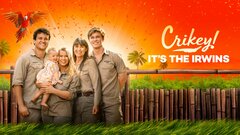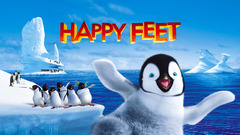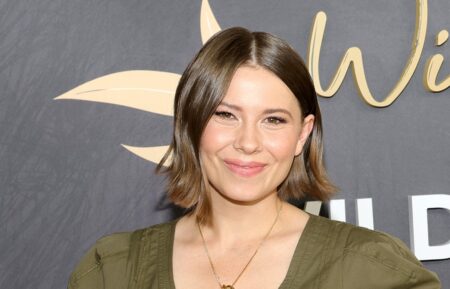Steve Irwin

Zookeeper • Personality • Conservationist
Birth Date: February 22, 1962
Death Date: September 4, 2006 — 44 years old
Birth Place: Essendon, Victoria, Australia
Children: Bindi Irwin
Steve Irwin was born to love animals and to fight for their survival - even those creatures most people would deem less than desirable. He had cared for reptiles since the tender age of six when he received his first long scrub python. Sadly, it was his devotion to not only nature, but bringing wild creatures to the attention of the world via his numerous popular TV programs, that cost "The Crocodile Hunter" his life in September, 2006.
Born Feb. 22, 1962 in Victoria, Australia and later relocated to Queensland, the Irwin family started a small reptile park in Beerwah on the Sunshine Coast. In 1973, the Australia Zoo opened their doors to the public and it became a true family business. The young Irwin literally grew up with the animals at the zoo, taking part in their daily maintenance and care. His father, Bob, taught his young son everything there was to know about reptiles - even teaching his son how to jump in and catch crocodiles in the rivers of North Queensland at night. Irwin's favorite boast back then was that every crocodile in their family's park (now numbering some 100 animals) was either caught by he and his father's bare hands or bred and raised in their park.
In 1990, Irwin received his big television break when he was reunited with his close friend, television producer John Stainton. Stainton was filming a television commercial in the Australian reptile park and extended an offer to shoot a documentary of Irwin and his animals. In 1992, Irwin's first documentary, "The Crocodile Hunter," aired on the Discovery Channel. The success of this documentary led to the production of one of the most popular nature series ever on cable television, providing the new star with a fitting moniker, "Crocodile Hunter," and making his expressions - particularly, "oh crikey!" - part of the international vernacular. Irwin could not have made a more fitting choice when he decided to appear in the feature film "Dr. Dolittle 2" (2001), the Eddie Murphy vehicle about a doctor who can speak to animals. One year later, Irwin's bold and courageous demeanor was showcased in his first starring feature role as himself in "The Crocodile Hunter: Collision Course" (2002). In it, Irwin was joined by his American-born wife Terri, doing what they did best - hunting the dreaded crocodiles. A nature lover at heart, Irwin did not forget those who had helped him claim his fame - donating a generous portion of his movie earnings to various crocodile and animal rescue leagues. In fact, through all the fame and money that came his way, Irwin remained at heart, a passionate environmentalist and conservationist, speaking out whenever he could - be it on "The Tonight Show" or "Larry King Live" - where he would usually trot out a variety of frightening creatures and speak of the need to protect them. In the wake of his death, many of his animal-handling TV peers like Jack Hanna and Jeff Corwin, credited Irwin with opening people's eyes to the beauty of the beastly croc and other largely loathed species of reptile.
Though Irwin's daredevil demeanor and infectious energy soon became his trademark, it also was a source of some criticism. Some Australians felt his over-the-top persona, omni-present khaki shorts and thick Aussie accent did more harm than good to the country's image - some comparing him none-to-favorably to Crocodile Dundee. This bit of national criticism though, was nothing compared to a 2004 incident beamed around the world. Caught on camera, Irwin caused an uproar by holding his infant son, Bob, in one arm while feeding large crocodiles inside a zoo pen, even walking the baby along the water's edge. A hurt Irwin claimed at the time there was no danger to his son and that it was not anything his father had not done with him. Authorities declined to charge Irwin with violating child safety laws. Later that year, he was accused of getting too close to penguins, a seal and humpback whales in Antarctica while making a documentary. Again, the Australian Environment Department investigation recommended no action be taken against him.
On Sept. 4, 2006, while shooting a series entitled "Ocean's Deadliest" off the Great Barrier Reef, Irwin's luck tragically ran out. Swimming very close to a stingray, he was stabbed in the chest by the animal's poisonous barb. The attack, which was caught on underwater video, ended with Irwin pulling the barb from his chest before losing consciousness. His heart punctured, Irwin was rushed by helicopter to nearby facilities on Low Isle, but never regained consciousness. He was pronounced dead shortly after his arrival. Upon hearing the news - that a man whom many felt was invincible; who had wrestled the world's deadliest reptiles - that he would be killed by a sea creature generally considered gentle, even docile, seemed the height of irony. In the wake of his death, tributes poured in from around the world as people of all ages and nationalities mourned the beloved "Crocodile Hunter."
Credits

Crikey! It's the IrwinsStream

The Crocodile Hunter: Best of Steve Irwin

Happy FeetStream

The Crocodile Hunter Diaries

The Crocodile Hunter Diaries

The Crocodile Hunter: Collision Course

The Crocodile Hunter's Croc Files

The Daily Show With Jon StewartStream

The Crocodile HunterStream




























